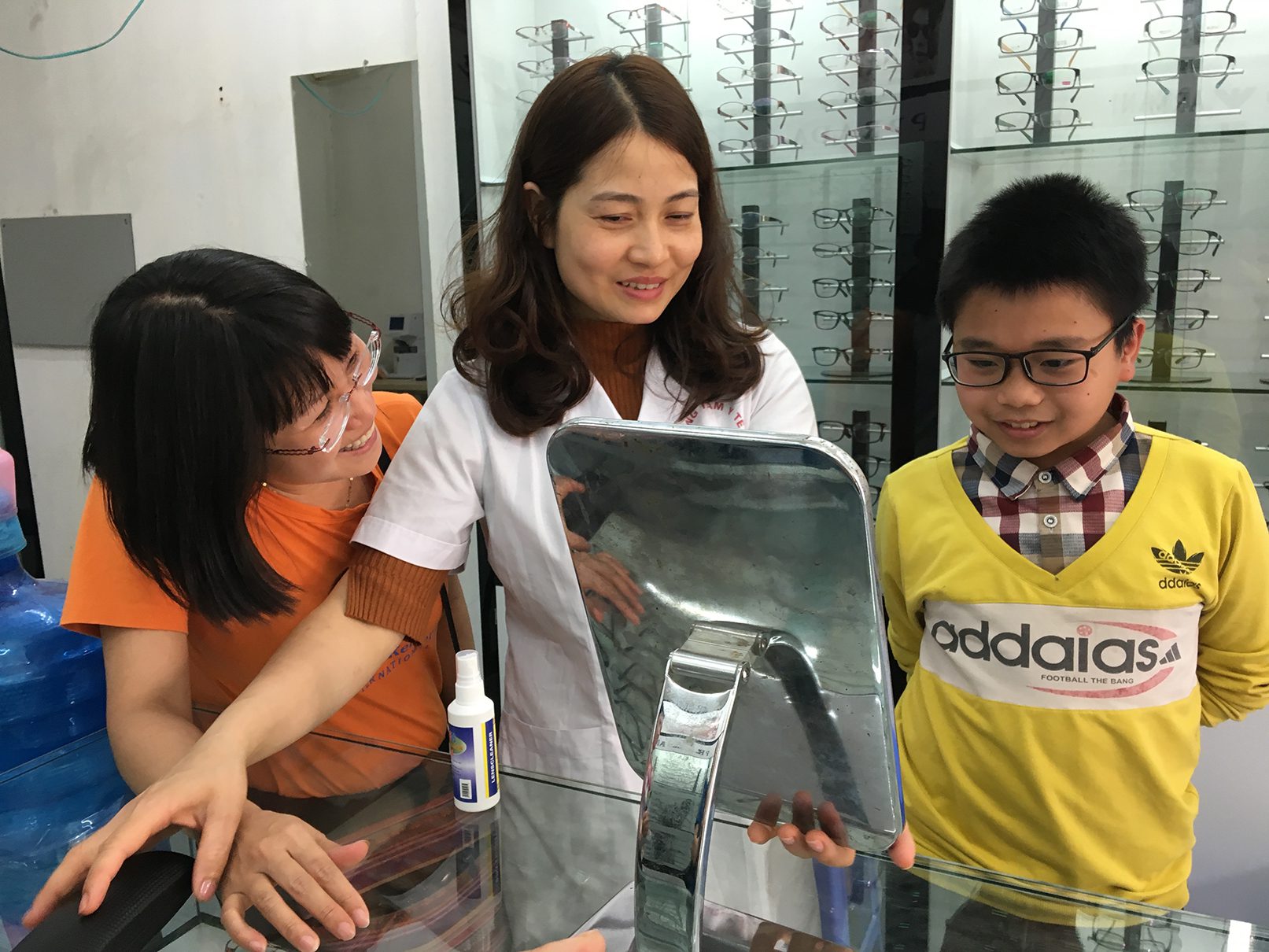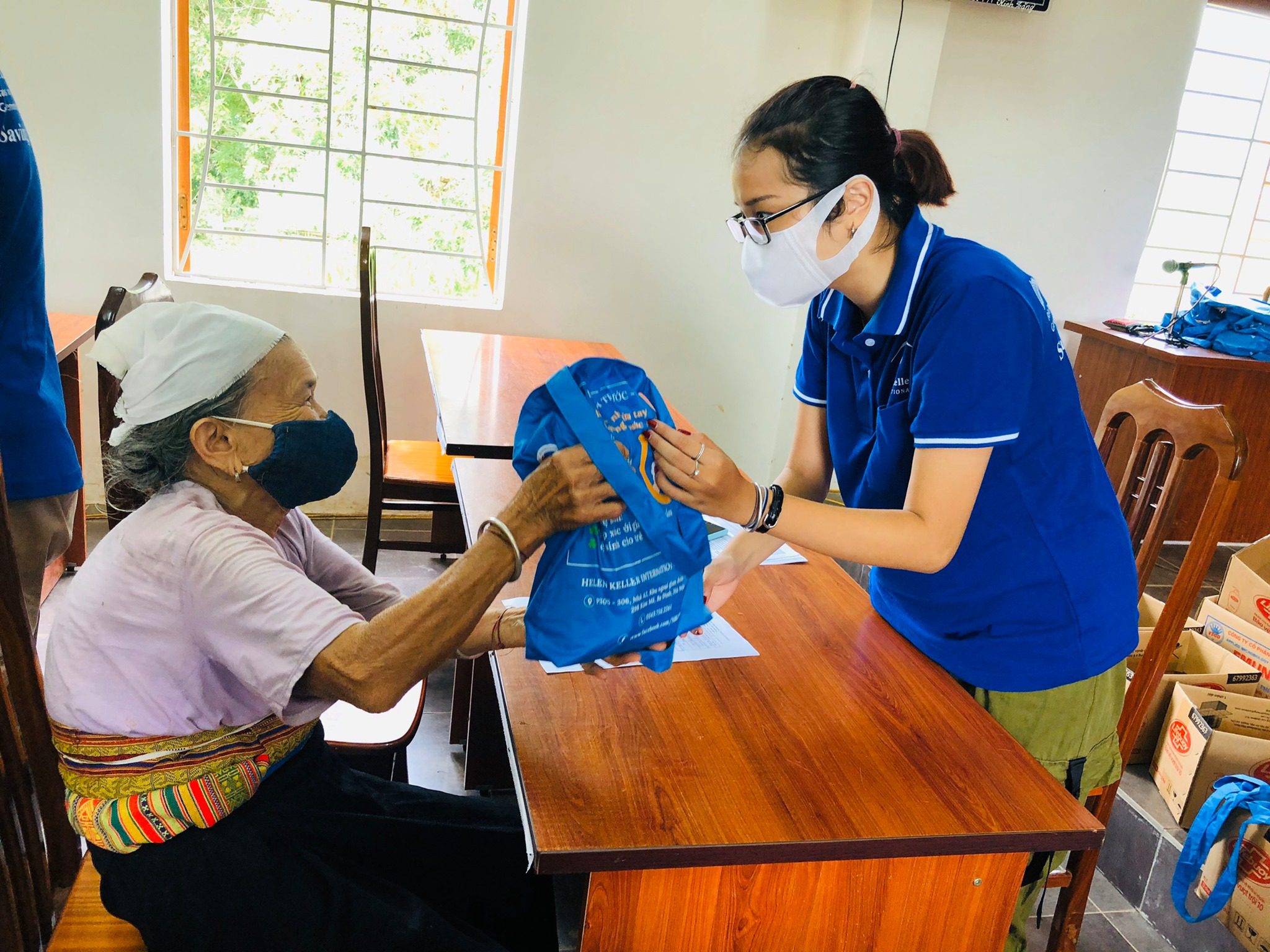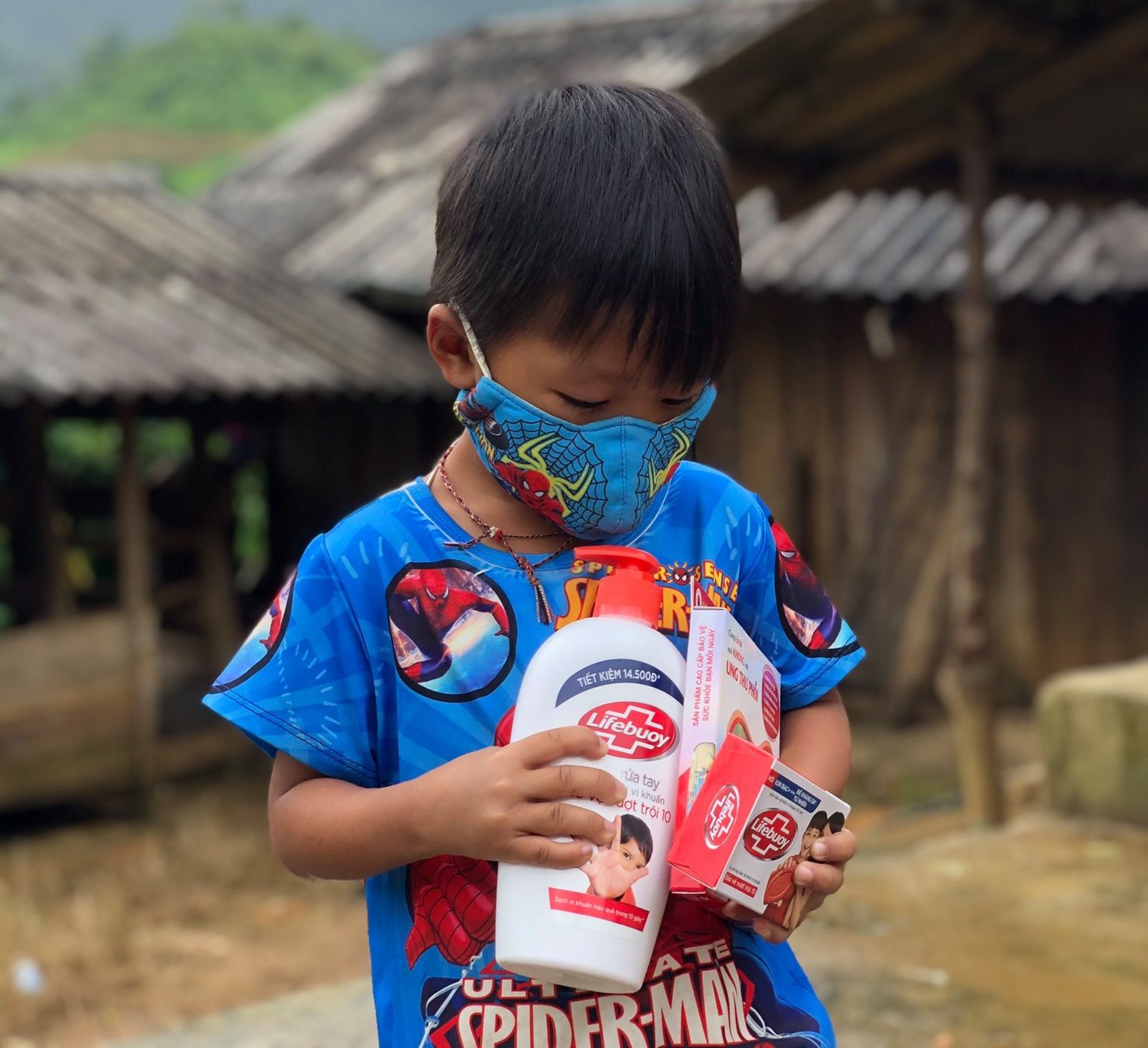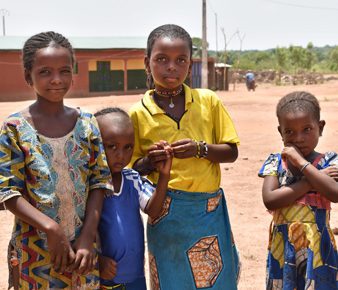Looking Bravely: In Vietnam, Quick Pivots Soften the Impact of COVID-19
Pham Kim Ngoc is Helen Keller Intl’s Country Director in Vietnam, where she oversees nutrition and vision programs that empower under-resourced communities. We spoke with her recently about how COVID-19 has impacted the country, and how Helen Keller staff have adapted programs to best serve communities in this new context. Ngoc has worked with Helen Keller for 16 years and lives in Hanoi with her husband and two young children.
Q: How has COVID-19 impacted Helen Keller’s programs in Vietnam?
A: Because of our proximity to China, the Vietnamese government sprang into action with prevention measures as soon as we learned about the outbreak of novel coronavirus in Wuhan. For example, our schools closed in early February, right after the Tet holiday (Vietnamese Lunar New Year). Schools didn’t open again until early May. Borders were closed, anyone entering the country was quarantined, and contract tracking was robust.
Fortunately, and thanks to that early government response, we had fewer than 400 cases of coronavirus until the end of July. Unfortunately, after almost 100 days of no local transmission, we did experience a spike in cases around that time, centered in the resort town of Da Nang. In response, the government re-instituted a total lockdown in that area, and schools nationwide were not allowed to start their fall terms sooner than September 5. As of mid-September, there are just over 1,000 cases and fewer than 40 deaths. This second swift lockdown was very successful, and Vietnam is once again in a period of low transmission.
Our vision programs don’t normally provide services during the summer vacation period, so they weren’t affected. The active time is September through May, during the school year, when we provide free vision screenings and eyeglasses to children who need them.

However, all in-person activities that are part of our nutrition programs were suspended for a month and a half – from mid-March to late April – until the government lifted its three-week lockdown in April. We were still working throughout that time, just not doing things like agricultural and cooking demonstrations in the field. Thankfully, we were able to follow through with the vision program trainings that we normally do at this time of year. We just did them online instead of in-person.
Now that the government has ended the second lockdown countrywide, we are almost completely back to normal. We can carry out our field activities, with safety precautions.
Q: During the time that nutrition activities were disrupted, how did you mitigate the impact on the people we serve?
A: A lot of what we do is educational, like teaching communities about agricultural techniques and the basics of a well-balanced diet. We could still educate people through the radio, through videos on our Facebook page, and through other remote means. A lot of the people we serve started following our activities online. For example, we had an online quiz in which people had to answer questions like whether moringa or oranges have more vitamin C. We chose winners from the comments section, and they received a gift. That is just one way we reached people despite not being able to physically reach them.
The first lockdown in Vietnam was only three weeks long, and the second one did not apply to the areas where we carry out nutrition programming. So, the impact on the populations we serve was limited. Because our nutrition program helps people to establish agricultural plots on their homesteads, they had access to nutritious food, grown on their own land. We’ve helped them learn about how to grow hearty crops, about which crops to grow for a well-balanced diet, and about how to use those crops in prepared foods. So the people who participate in that program were relatively safe and remained healthy throughout the lockdown. If it had been longer, it would surely have had more of an impact on people, but thankfully we avoided the worst.
Q: How did the program stoppages impact Helen Keller Intl staff?
A: Even though some programs paused in-person activities, there were still so many things for our staff to do. We pivoted staff who usually go to the field, to working on planning, budgeting, and communications activities instead.
We met twice a week online while the office was closed during the three-week lockdown. Since early May, we have been back in the office. We wear masks, maintain a two-meter distance, and wash hands often.
Q: Vietnam has done better than most countries in keeping transmission levels low, but the country is still at risk. How is your team helping to keep the people you serve stay safe?
A: We are in the process of producing additional public health messages about water, sanitation, hygiene, and nutrition, with a COVID-19 focus. So far, we have been disseminating messages on how to stay safe from COVID via loudspeakers and social media messages. We are also providing soap, hand sanitizer and mask packages to our partners, including the Centers for Disease Control in three provinces, who in turn are distributing them to communities.

While we are back to normal operation, there is one difference: we are integrating COVID-19 safety measures and prevention messages into everything we do.
Q: Any words of solidarity to other Helen Keller Intl staff?
A: We need to stay strong and united as a team, for the sake of the staff and the community members who depend on us. We are following government and WHO guidance, and we are committed to stay strong, stay united, and look forward.
Q: What gives you hope in this challenging time?
A: I believe that Helen Keller Intl can work with governments to lessen the impact of COVID-19 on communities, and to support communities to be resilient to whatever comes at them, whether COVID-19 or anything else. So that gives me hope.











